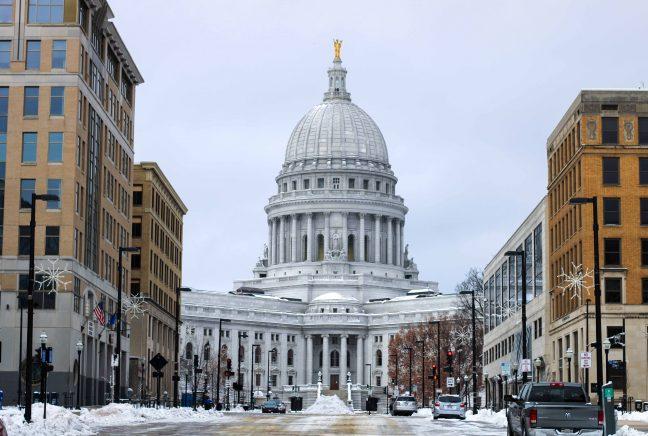With the proposal of a new home for a permanent men’s shelter, the “Not in my Backyard” phenomenon is being fully seen by those who are to be the shelter’s new neighbors.
While many agree there should be resources available for those in need, neighbors of the proposed shelter don’t want to be the ones to take on that responsibility as it may hurt their businesses and bring “economic loss,” as explained by Supervisor Andrew Shauer, District 21.
Homelessness in Madison has always been a critical issue that needs to be addressed more not only by those representing the city, but also by its inhabitants. During the COVID-19 pandemic, that issue has only gotten worse, with more people out on the streets and current resources being stretched thin.
When COVID-19 first struck, homeless men were able to stay at the Warner Park Community Recreation Center for the colder months and at McPike Park when it was warmer. But, both of these options will soon become unavailable.
The city of Madison has ordered those currently staying at Madison’s largest homeless encampment, McPike Park, and any others who plan to return to vacate the park by Feb. 28, effectively giving even fewer options to those who are homeless.
This vacation order was prompted by many of the neighbors around the encampment. Madison inhabitants complained that they were bothered by the smoke from the burning wood and other materials in the campsite.
Never mind that that fire was the only heat source for those living there and the only way for many to cook their food. The inhabitants were more concerned by the lack of response from the city to their inquiries and they insisted that an exit plan be put in place.
Many of the regular residents of the park are currently housed in hotel rooms that are funded through donations and other funding sources. While this was a very short-term solution for Madison’s recent cold snap, the concern shifts to where these men will go after the funds expire.
Ben Jackson, an outreach worker for Porchlight Inc., explained that his greatest concern is “what will happen next Monday when those people housed in hotels temporarily during this cold snap are told they are going back to the street.”
If the proposed permanent men’s shelter was more widely accepted, this order would seem fairer than it does now. But, similar to the problems with McPike Park, many neighbors of the proposed shelter are very hesitant to accept this shelter into their area. They claim this shelter would lower business to the stores and bring the unwanted clientele.
“I will now focus my energy on making sure businesses in my district which are close to this facility are properly covered by public protection and that they receive appropriate economic benefits that are available to local businesses in the area,” Shauer said.
Instead of focusing on how he could try and help the businesses around the shelter understand that just because they will be by a shelter doesn’t mean there will be a tank in business, he finds it more important to make sure those businesses that don’t want the shelter there are economically stable.
The stigma surrounding people who are homeless has existed for many generations.
Many people blame homeless populations for their circumstances, however, especially in light of COVID-19, it is clear that homelessness is a multifaceted issue.
The lack of support that is currently being shown in the Madison area for homeless communities and the proposed men’s shelter is something that needs to change.
There needs to be more importance put on helping those who have less, and a bigger push to help create more resources for those who need help.
The issue of homelessness shouldn’t be something that is shied away from. We must ensure every member of the Madison community is able to have their basic needs met and supporting the creation of new shelters is an important first step.
Grace A. Metzler (gametzler@wisc.edu) is a junior majoring in legal studies and social welfare.


